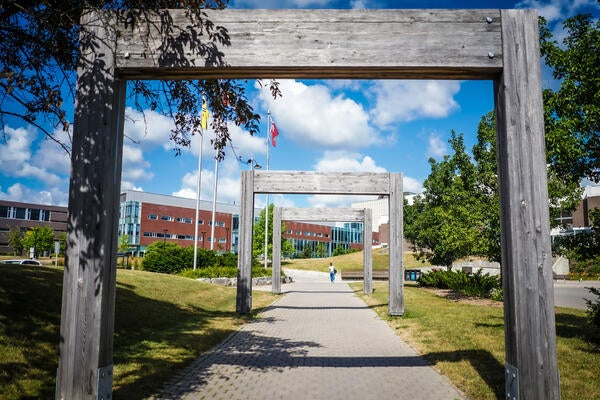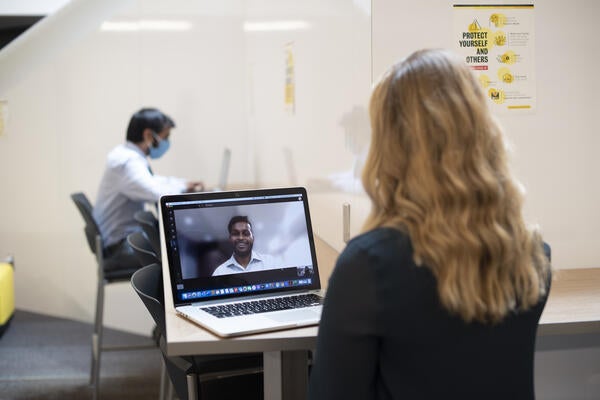
Keeping pace with the global digital acceleration
Industry leaders deliver valuable insights on how work-integrated learning helps students stay ahead of digital transformation

Industry leaders deliver valuable insights on how work-integrated learning helps students stay ahead of digital transformation
By Matthew King Co-operative and Experiential EducationAs the world continues to change and everyone rethinks their business, the digital divide could further divide those who have access to technology and those that do not — but we’ll see a new gap in digital skills.
“There’s a new digital divide that’s going to come upon us — it’s going to be those that have the skills to thrive in a digital world and those who don’t,” said Vivek Goel, University of Waterloo president.
As part of Beyond digital. Accelerate with the skills you need Goel joined Kevin Peesker, Microsoft Canada president; David McKay, RBC president and CEO; and moderator Norah McRae, associate vice-provost, co-operative and experiential education at Waterloo. Together they discussed how work-integrated learning can play a key part in preparing students to join the workforce during a digital transformation.
“There has been a fundamental awakening in every industry, almost a collective revolt on the status quo of how things were done because of the capabilities embedded with digital acceleration and digital enablement,” Peesker said. “At the core of that, a fundamental transition in supply and demand. Demand for skills that are in short supply, and supply for those skills.”
“The acceleration of digital in our society has changed just about everything — from our place of work, to how we deliver value, exchange goods and services and how we operate as a society and an economy,” shared McKay.
Although the correlation between digital acceleration and technological jobs is clear, Peesker pointed out it is as much about jobs that apply that technology as those that create it.
“Applying technology, is as important if not more so, than creating the technology. Both require a phenomenal asset of skills.” Peesker went one step further, looking ahead at the digital acceleration he said, “I think the reality is every job is a tech job.”
As a result, industry and universities are forced to adapt the way they prepare students for entering the work force. As McKay explained, the bar for entry level positions is going up and both need to adapt.
“That’s why we need programs that help students build those skills. That’s why co-op education and work-integrated learning is the best way to educate the next generation.” Goel pointed out that the University of Waterloo continues to innovate with quality work-integrated learning experiences with the creation of the Waterloo Experience (WE) Accelerate program. These types of innovations expand on our diverse employer base, offering new opportunities for students and industry.
All three leaders agreed the development of key competencies like those outlined in the Future-Ready Talent Framework are as integral as the technological skills discussed.
"There’s a whole cluster of skills around managing yourself, being a lifelong learner, because it is not going to end when you walk out of the door here at Waterloo,” said Goel.
Similarly, McKay shared that while you “can’t predict the skills that are coming at us,” you can build a framework for constant, lifelong learning that will set you up for success.
“There couldn’t be a more exciting time to be part of the global economy,” said McKay.
Watch a recording of the Beyond Digital event:

Read more
The University records more than 23,000 co-op students employed in 2021

Read more
Work-Integrated Learning program helps students discover their talents and prepare for an ever-changing future

Read more
Lessons learned during the pandemic are part of a new initiative at Waterloo that combines face-to-face teaching with online learning
The University of Waterloo acknowledges that much of our work takes place on the traditional territory of the Neutral, Anishinaabeg, and Haudenosaunee peoples. Our main campus is situated on the Haldimand Tract, the land granted to the Six Nations that includes six miles on each side of the Grand River. Our active work toward reconciliation takes place across our campuses through research, learning, teaching, and community building, and is co-ordinated within the Office of Indigenous Relations.